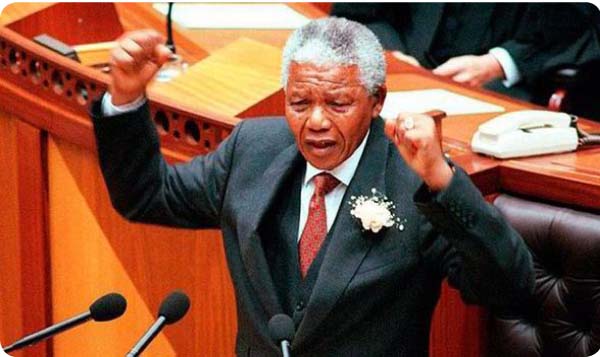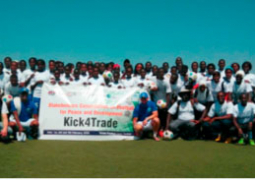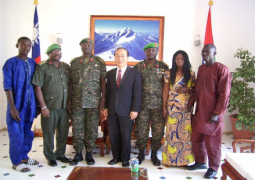
Nelson
Mandela: Speeches, Letters and Other Writers, Pearson Modern Classics, 2002,
167 pages
In
1964, a few months after Nelson Mandela (1918-2013) was jailed by the Apartheid
regime, a small compendium of his most notable writings and speeches was
published under the arresting title NO EASY WALK TO FREEDOM. In the preface of
the edition by Dr Oliver Tambo, the great anti-apartheid hero who for three
decades led the ANC while Mandela was in jail, explained the long years that he
and Mandela shared as professional colleagues sharing the same legal practice
and also working together in the ANC as leaders of the struggle.
Now
almost fifty years later, Pearson publishers have re-issued this famous
collection of speeches and letters of Mandela from 1949 to 1964, edited and
annotated by Professor Ato Quayson of Cambridge University.
This
book is indeed a great historical document. It contains the very best of the
Mandela style of speech and writing: his legal training made him a great writer
and polemicist, who was able to win minds and influence people through is
words, spoken or written. All the speeches in this collection are worth reading
because they give the perceptive reader an insight into the mind of the freshly
departed anti apartheid hero and liberation icon, who was buried a few days
ago.
The
last speech, the great one he made at Rivonia a few hours before he was
sentenced to life in 1964 is particularly worth reading more than once. That
speech which he ended by his now iconic phrase ‘But if needs be, it is an idea
for which i am prepared to die’ summarises the whole history of ANC struggle
against White minority rule from 1912 to 1964.
In
this speech, Mandela proved to his accusers that in fact, they should have been
in the dock and not him and his colleagues charged with sabotage and treason.
He showed the hypocrisy of the apartheid regime: preaching anti Black
sentiments to the White population of South Africa, who form a measly 10 per
cent of the population, while asking or expecting Black majority to obey and
die in subjugation. He used this speech (p.105) to refute the lame apartheid
talk of the ANC being a communist organisation. He told his accusers all what
the ANC stood for was the total liberation of all South Africans and to install
a regime which did not discriminate.
Reading
the speeches in this book, one also cannot lose sight of the fact that Mandela
was never bitter against his oppressors, which still surprises the world as it
was thought that when he was going to seek vengeance. This is why in all the
eulogies paid to him last week, one strain was common: he was a forgiven man,
who forgave his oppressors and jailers and forged a new South Africa after he
was released and elected president in 1994.
I
strongly recommend this book as weekend read in memory of our great Nelson
Mandela aka MADIBA.
Available
at Timbooktoo Tel:4494345



